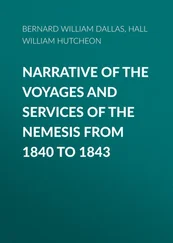John Tanner - A narrative of the captivity and adventures of John Tanner
Здесь есть возможность читать онлайн «John Tanner - A narrative of the captivity and adventures of John Tanner» весь текст электронной книги совершенно бесплатно (целиком полную версию без сокращений). В некоторых случаях можно слушать аудио, скачать через торрент в формате fb2 и присутствует краткое содержание. Жанр: Путешествия и география, на английском языке. Описание произведения, (предисловие) а так же отзывы посетителей доступны на портале библиотеки ЛибКат.
- Название:A narrative of the captivity and adventures of John Tanner
- Автор:
- Жанр:
- Год:неизвестен
- ISBN:нет данных
- Рейтинг книги:4 / 5. Голосов: 1
-
Избранное:Добавить в избранное
- Отзывы:
-
Ваша оценка:
- 80
- 1
- 2
- 3
- 4
- 5
A narrative of the captivity and adventures of John Tanner: краткое содержание, описание и аннотация
Предлагаем к чтению аннотацию, описание, краткое содержание или предисловие (зависит от того, что написал сам автор книги «A narrative of the captivity and adventures of John Tanner»). Если вы не нашли необходимую информацию о книге — напишите в комментариях, мы постараемся отыскать её.
A narrative of the captivity and adventures of John Tanner — читать онлайн бесплатно полную книгу (весь текст) целиком
Ниже представлен текст книги, разбитый по страницам. Система сохранения места последней прочитанной страницы, позволяет с удобством читать онлайн бесплатно книгу «A narrative of the captivity and adventures of John Tanner», без необходимости каждый раз заново искать на чём Вы остановились. Поставьте закладку, и сможете в любой момент перейти на страницу, на которой закончили чтение.
Интервал:
Закладка:
Some time after this, as we were sleeping one night in the road, some one came up on horseback, and asked us, in the Ottawwaw dialect, who we were. One of the Indians answered, “We are Ottawwaws and Ojibbeways, and have with us one Long Knife from Red River, who was taken prisoner many years ago by Gish-kaw-ko.” He told us, after he understood who we were, and where we were going, that his name was Ah-koo-nah-goo-zik. “If you are brisk travellers,” said he, “you may reach my house next day after to-morrow at noon, and then you will find plenty to eat. It is necessary that I should travel on all night, that I may reach home to-morrow.” And thus he left us. Next day, my strength failed so much that I was only able to keep up by being released from my load. One took my gun, another my blanket, and we reached that night the forks of the Miami, where was a settlement of Indians and a trading-house, as well as several families of whites. I applied to the trader, and stated my situation, and that of the Indians with me, but we could obtain no relief, and on the next day I was totally unable to travel. We were indebted to the Indians for what relief we obtained, which was sufficient to enable us the day after to reach the hospitable dwelling of Ah-ko-nah-goo-zik.
This man had two large kettles of corn and venison ready cooked, and awaiting our arrival. One he placed before me, with some wooden dishes, and spoons; the other before Be-nais-sa. After we had eaten, he told us we had better remain with him ten or fifteen days, and refresh ourselves from our long journey, as he had plenty of corn, and fat venison was abundant about him. I told him that for my own part I had for many years been wishing to make the journey I had now so nearly accomplished, and that I was extremely impatient to see whether or not any of my own relatives were still alive, but that I should be glad to rest with him two or three days, and afterwards to borrow one of his horses to ride as far as Kau-wis-se-no-ki-ug, or St. Mary’s. “I will tell you,” said he. After two or three days, as we were early one morning making up our loads to start, he came to me, leading a fine horse and putting the halter in my hand, he said, “I give you this for your journey.” I did not again tell him I would leave it at Kau-wis-se-no-ki-ug, as I had already told him this, and I knew that in such cases the Indians do not wish to hear much said. In two days I arrived at the place appointed for the council. As yet no Indians had assembled, but a man was stationed there to issue provisions to such as should come. I had been but a short time at this place when I was seized with fever and ague, which, though it did not confine me all the time, was yet extremely painful and distressing.
After about ten days, a young man of the Ottawwaws, whom Be-nais-sa had given me to cook for me and assist about me in my sickness, went across the creek to a camp of the Po-ta-wa-to-mies who had recently arrived and were drinking. At midnight he was brought into the lodge drunk, and one of the men who came with him, said to me, as he pushed him in, “Take care of your young man. He has been doing mischief.” I immediately called Be-nais-sa to kindle a fire, when we saw, by the light of it, the young man standing with his knife in his hand, and that, together with his arm and great part of his body covered with blood. The Indians could not make him lie down, but when I told him to, he obeyed immediately and I forbade them to make any inquiries about what he had done, or take any notice of his bloody knife. In the morning, having slept soundly, he was perfectly unconscious of all that had passed. He said he believed that he had been very drunk, and as he was now hungry, he must hurry and get ready something to eat. He was astonished and confounded when I told him he had killed a man. He remembered only that in his drunkenness he had began to cry for his father, who had been killed on that spot several years before by white men. He expressed much concern, and went immediately to see the man he had stabbed, who was not yet dead. We learned from the Po-ta-wa-to-mies that he had found the young man sleeping, or lying in a state of insensibility from intoxication, and had stabbed him without any words having been exchanged, and apparently without knowing who he was. The relations of the wounded man said nothing to him, but the interpreter of Gov. Cass reproved him very sharply.
It was evident to all that the young man he had wounded could not recover; indeed, he was now manifestly near his end. When our companion returned, we had made up a considerable present, one giving a blanket, one a piece of strouding, some one thing, and some another. With these he immediately returned, and placing them on the ground beside the wounded man, he said to the relatives who were standing about, “My friends, I have, as you see, killed this, your brother; but I knew not what I did. I had no ill will against him, and when, a few days since, he came to our camp, I was glad to see him. But drunkenness made me a fool, and my life is justly forfeited to you. I am poor, and among strangers, but some of those who came from my own country with me, would gladly bring me back to my parents. They have, therefore, sent me with this small present. My life is in your hands, and my present is before you, take which ever you choose. My friends will have no cause to complain.” He then sat down beside the wounded man, and stooping his head, hid his eyes with his hands, and waited for them to strike. But the mother of the man he had wounded, an old woman, came a little forward and said, “For myself and my children, I can answer, that we wish not to take your life; but I cannot promise to protect you from the resentment of my husband, who is now absent; nevertheless, I will accept your present, and whatever influence I may have with him, I shall not fail to use it in your behalf. I know that it was not from design, or on account of any previous hatred that you have done this, and why should your mother be made to cry as well as myself?” She took the presents, and the whole affair being reported to Gov. Cass, he was satisfied with the course that had been taken.
On the following day the wounded man died, and some of our party assisted the young man who had killed him in making his grave. When this was completed, the governor gave the dead man a valuable present of blankets, cloth, etc. to be buried with him, according to the Indian custom, and these were brought and heaped up on the brink of the grave. But the old woman, instead of having them buried, proposed to the young men to play for them. As the articles were somewhat numerous, various games were used, as shooting at the mark, leaping, wrestling, etc. but the handsomest piece of cloth was reserved as the prize for the swiftest in the foot race, and was won by the young man himself who had killed the other. The old woman immediately afterwards called him to her, and said, “Young man, he who was my son, was very dear to me, and I fear I shall cry much and often for him. I would be glad if you would consent to be my son in his stead, to love me and take care of me as he did, only I fear my husband.” The young man, who was grateful to her for the anxiety she showed to save his life, immediately consented to this arrangement, and entered heartily upon it. But the governor had heard that some of the friends of the deceased were still determined to avenge his death, and he sent his interpreter to the young man, to direct him, without loss of time, to make his escape, and fly to his own country. He was unwilling to go, but as Be-nais-sa and myself concurred with the governor in his advice, and assisted him in his preparations, he went off in the night; but instead of going immediately home, as he had been directed to do, he lay concealed in the woods only a few hundred yards from our lodge.
Читать дальшеИнтервал:
Закладка:
Похожие книги на «A narrative of the captivity and adventures of John Tanner»
Представляем Вашему вниманию похожие книги на «A narrative of the captivity and adventures of John Tanner» списком для выбора. Мы отобрали схожую по названию и смыслу литературу в надежде предоставить читателям больше вариантов отыскать новые, интересные, ещё непрочитанные произведения.
Обсуждение, отзывы о книге «A narrative of the captivity and adventures of John Tanner» и просто собственные мнения читателей. Оставьте ваши комментарии, напишите, что Вы думаете о произведении, его смысле или главных героях. Укажите что конкретно понравилось, а что нет, и почему Вы так считаете.










